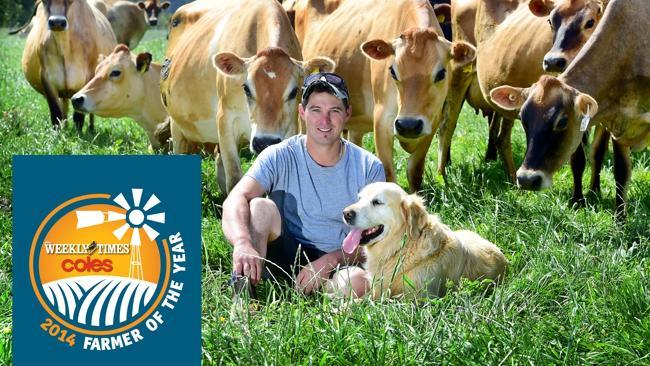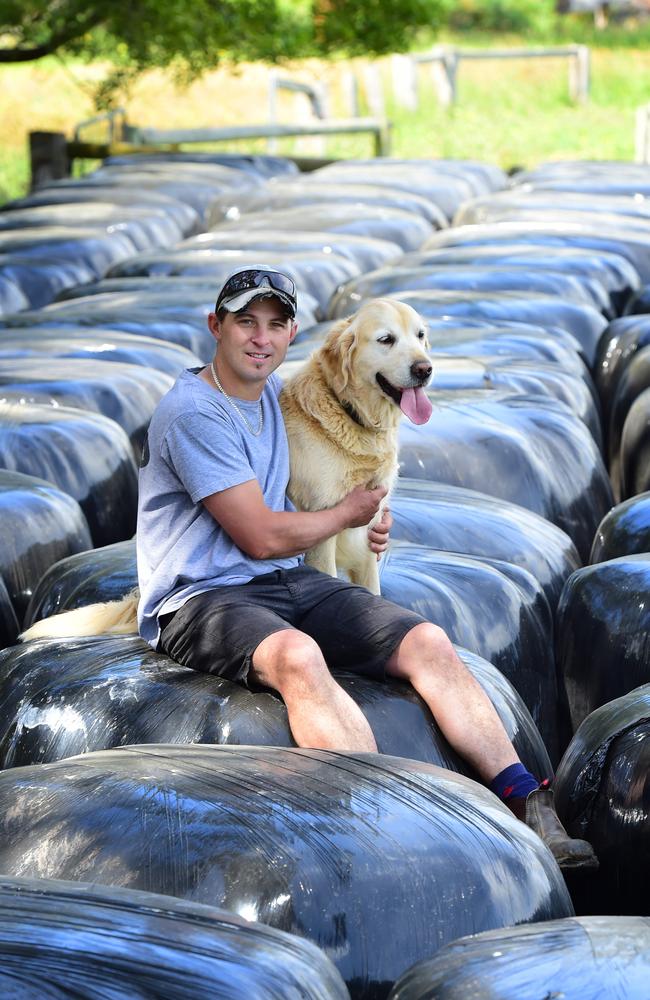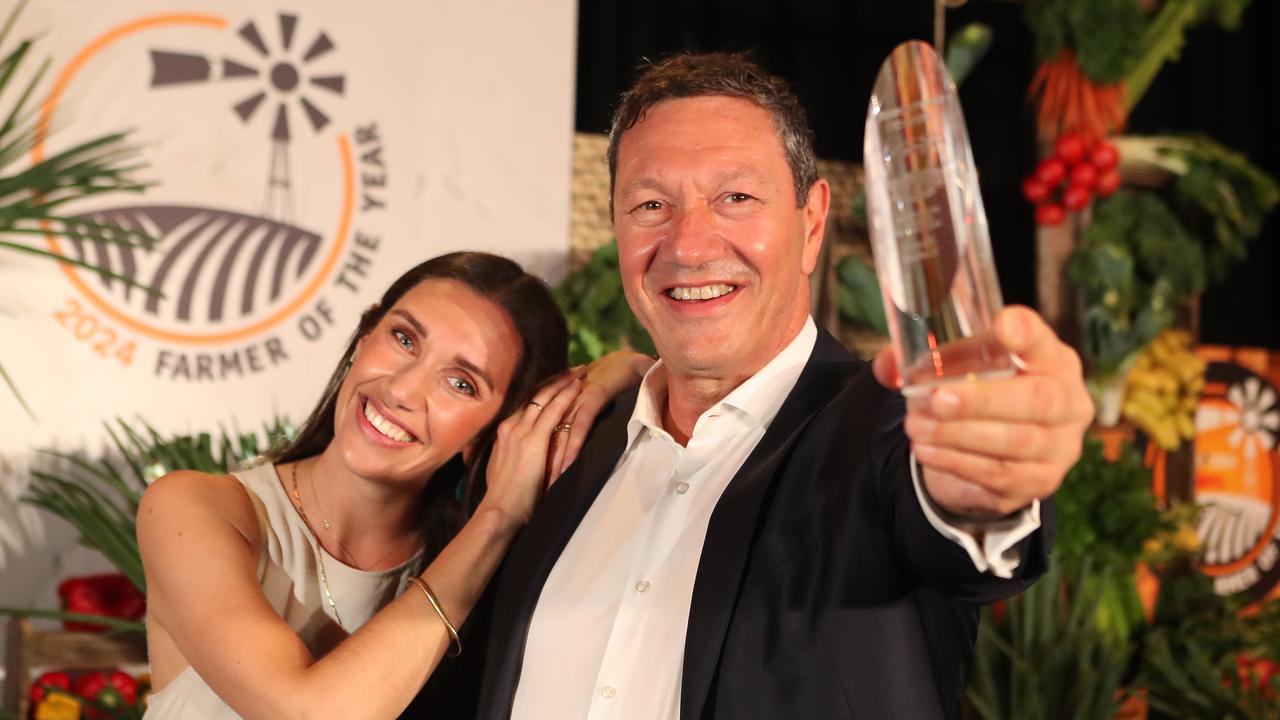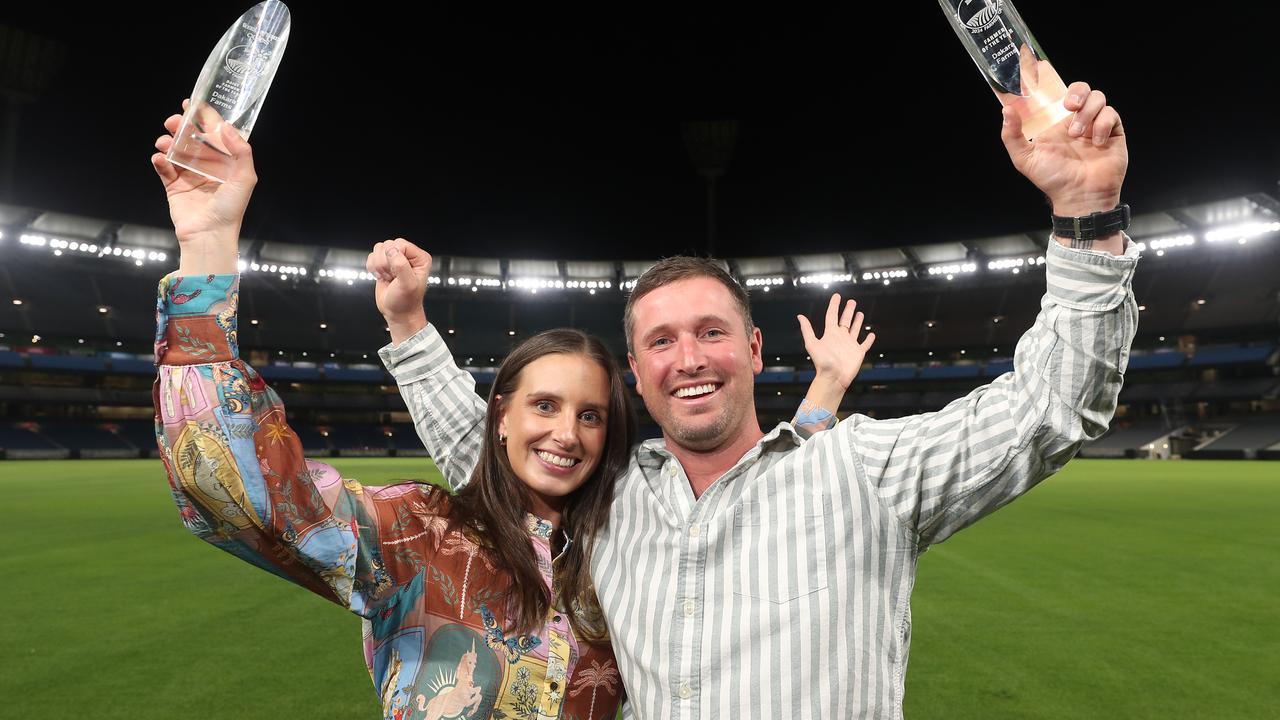Aaron Thomas of Binginwarri in South Gippsland mooves up the dairy ladder
ONE passionate South Gippsland dairy farmer reckons there’s no need to own land to become a success.

AARON Thomas’s love of the dairy industry shines through in conversation.
It is in the way Aaron talks about moving through the ranks from farm worker, to manager and now sharefarmer.
It is also in evident in the way he speaks about changing careers, moving from nursing to dairying because “nursing wasn’t doing it” for him.
But ask the 31-year-old if he wants to buy a farm and his reaction may come as shock.
“We have no ambition to own a dairy farm at all,” says the dairy farmer from Binginwarri in South Gippsland.
“My reason? I won’t be milking cows for the rest of my life. At this very point in time I absolutely love it. I will stay in the industry in some capacity, but ... my thoughts are why buy a farm that is going to tie me to that when that is not what I’m going to do?”
Citing injuries that led to knee and shoulder reconstructions and from “being pretty hard on my body”, Aaron doubts he will be able to do it.
He and wife Vanessa plan to build equity through their Jersey herd and, “if things go well”, put money into off-farm investments such as a block of land or property.
A fulfilling and fruitful career in dairy doesn’t hang on owning the land, according to Aaron.
“In my mind there is absolutely nothing wrong, and there have been many, many successful farmers before me who are professional sharefarmers or lessees,” he says.
“I don’t believe I need to buy a farm to be a successful dairy farmer.”
WHEY FORWARD
AARON’S full-time move into the dairy industry started about nine years ago, but he did milk cows while studying and also worked at a Murray Goulburn trading store.
For 18 months he worked on a commercial farm at Won Wron, before shifting to Paul and Lisa Mumford’s registered Jersey operation.

In October last year he, Vanessa and their two children — Breanna, 3, and Lexi, 1 — moved into a sharefarming arrangement with the Mumfords milking 180 cows across 94ha.
“I couldn’t finance the herd of cows,” Aaron says. “Basically Paul and Lisa said to me, ‘We will finance the herd’, and in turn they put me on a very high manager’s wage and half the wage goes back to pay (for the herd).”
The agreement is for five years and at the end which the arrangement will change to a “full sharefarm agreement”.
Aaron and Vanessa are in charge of everything at the property, including financials, with input from consultant Matt Harms every three months.
Budgets are managed according to the season while farmgate prices are also taken into consideration with operation decisions.
PASTURE MASTER
BY Aaron’s admission he’s “pretty ruthless” on his pasture rotation, but is also currently a “big feeder in the bail”.
Each cow consumes 5kg of a custom-blend pellet a day in the bail in a bid to push production and hold it while the milk “price is reasonably respectable”. They produce an average 1.89kg of milk solids a day, returning a daily net profit after feed of about $7 a head.
The June-calving herd is on a 30-day rotation and is grazed on 1.5ha of fresh pasture every 12 hours. Capitalising on a great season, Aaron and Vanessa have made more than 500 round rolls of silage from their predominantly perennial ryegrass pastures.
Earlier this month the Thomases’ had considered introducing silage into the herd’s feed ration in the next rotation, but 150mm of rain in the second week of December changed their plans. Aaron “doesn’t envisage” having to feed silage now until February, but pasture availability is always under review.
RAIN MAKERS
THE farm, near Yarram, has an annual average rainfall of 1000-1100mm.
About 70 per cent of the property is “gentle undulating” paddocks with the remainder steep.
This steep area and 38ha of neighbouring leased country is where the herd spends its dry-off period with the main part of the farm rested for four weeks before calving starts on June 20.
“This spell is essential for the farm and the way we operate,” Aaron says. “We don’t have labour ... and the spell allows us to build good grass cover.
“My theory is grass is king. I want to grow as much pasture as I can, managing it as best as I can to get the best outcome, the cheapest form of milk.”
The farm is budgeted to make $36,000 profit this season, but Aaron stresses this is forecast and “does not mean it will be true”.
“This year has been favourable, but I’m a little bit concerned about next year if the rumours are true and milk price will go back,” he says.
Money earned this season will be used to prepare the business for a potential slide in farmgate returns. Inputs such as grain, hay or fertiliser will be bought early and stored, while other money will be put away for future needs.
Other considerations for riding out a year of cheaper prices include limiting fertiliser applications to maintenance.
FORWARD THINKING
LOOKING ahead, the Thomases want to investigate the proposition of biological farming, reducing the amount of synthetic fertiliser applied to the farm but also as a way to get something from less.
They hope a focus on natural fertilisers will, in time, boost the health of soils, pastures and herd, and are confident this can lead to increased production.
Operating their own registered Morningside Jerseys, genetics is another passion for the Thomas family. They have built a herd around cows from the Mumfords’ Gelbeado Park stud as well as the Moroka Jersey stud at Heyfield and some of their own cows.
Half the herd is registered and Aaron has started working with embryo transfer with particular cows to get the most from their genetics. The most recent has been “a nice two-year-old in-milk” which won her class in the South Gippsland Jersey Breeders Club competition and then stood eighth in the Semex Jersey Australia Great Southern Challenge final.
While it is early, Aaron is confident he has a minimum of 70 per cent of the herd in calf to artificial insemination this year. Moving the farm last year, he has little evidence to compare this and felt the transition meant some cows didn’t have the opportunity to get in calf.
LISTEN AND LEARN
IN Aaron’s short dairying career he made sure to involve himself in the Victorian Farmers Federation and is also in his second term as president of the South Gippsland Jersey Breeders Club. A monthly local discussion group also plays a vital role in helping he and Vanessa endorse or dismiss farm decisions or potential decisions.
Studying a Diploma of Agriculture through the National Centre for Dairy Educations Australia, he will go to New Zealand on a United Dairyfarmers of Victoria scholarship, sponsored by the Gardiner Foundation, in February.
His aim will to look at the potential of biological farming, but also investigate the varied ways youth enter the dairy industry across the Tasman.
He says there are plenty of opportunities in the industry for people willing to work and the rewards are also available.
“Vanessa and I have half a million (dollars) in assets on a good day and that has been accumulated in three-to-four years,” he said. “Farming can be very, very good to people if you keep you keep your whole focus on the big picture, you can’t go farming with blinkers on.”


